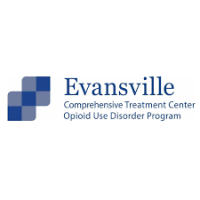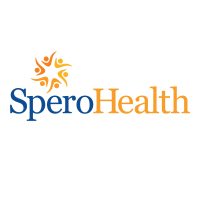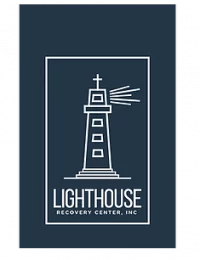Evansville Treatment Center
Drug Rehab Center in Evansville, Indiana
Evansville Treatment Center provides addiction treatment services using evidence-based and holistic therapies, tailored to individuals of all ages, genders, and backgrounds, and is accredited by the Joint Commission and Indiana State Department of Health.
About Evansville Treatment Center in Indiana
Evansville Treatment Center (ETC) is a private rehab facility located in Evansville, Indiana, specializing in the treatment of alcoholism, drug addiction, opioid addiction, and substance abuse. With a focus on evidence-based and holistic therapies, ETC works with patients of all ages, genders, and backgrounds to create personalized treatment plans that promote healing and long-term sobriety.
- Customized care plans incorporating cognitive behavioral therapy, motivational interviewing, and holistic therapies like yoga, mindfulness, and nutrition
- Medication management, including medication-assisted treatment, to address underlying mental health issues such as depression and anxiety
- Accredited by the Joint Commission and the Indiana State Department of Health, demonstrating a commitment to high-quality care
- Specialized programs tailored to specific populations, including women, adolescents, and those in need of intensive outpatient treatment
ETC is accredited by the Joint Commission and the Indiana State Department of Health, as well as CARF and SAMHSA, further emphasizing their dedication to providing top-notch care. The center offers a range of specialized programs to ensure that each individual receives the tailored support they need.
In addition to treating various substance abuse disorders, ETC addresses co-occurring mental health issues and provides a unique trauma recovery program to help individuals heal from past experiences and the effects of addiction. By utilizing a comprehensive approach that combines evidence-based practices with holistic therapies, ETC aims to empower individuals on their journey to lasting recovery.
Genders
Ages
Modality
Additional
Accreditations
SAMHSA

CARF
The Commission on Accreditation of Rehabilitation Facilities (CARF) is a non-profit organization that specifically accredits rehab organizations. Founded in 1966, CARF's, mission is to help service providers like rehab facilities maintain high standards of care.
Conditions and Issues Treated
Substance Abuse Treatment is important when getting sober, as it helps addicts learn the skills they need to live a clean life. There are many different kinds of recovery treatment, including but not limited to medication-assisted therapy, behavioral therapeutic approaches, self-help groups, and counseling. Each treatment has its benefits that help addicts recover.
Counseling can help addicts learn the skills they need to live sober lives. It can be used to treat underlying mental health issues, like depression or anxiety, that could lead to relapse. Counseling can also help people find work, deal with family problems, and learn to manage living without drugs.
With so many people addicted to opioids, we need to help those who want to quit. The cycle begins when opioid addicts take opioids for a painful injury. When someone starts taking their medication differently or in excess, it means they’re addicted and at risk of overdosing.
In , detoxing from these types of treatments is the most effective way to beat this. Most facilities begin with medical assistance and then provide counseling services; rehabilitation follows after successful treatment.
Levels of Care Offered
This center offers a variety of custom treatment tailored to individual recovery. Currently available are Detox, Drug Rehab, Intensive Outpatient, Outpatient, with additional therapies available as listed below.
Detox is an integral part of recovery and often very hard. Detoxification is the process of letting the body remove the drugs in it. It addresses the physical aspect of addiction. Detox from drugs can be unsafe as the patient undergoes withdrawal symptoms that range from headaches, vomiting, body aches to seizures and cardiac arrests. The main purpose of detox is to keep the drug users comfortable as the drugs leave their system.
Quitting cold turkey is not recommended and can lead to many issues. Detox is best done under medical supervision so that a team of experts can monitor the side effects and complications. Detox, alone, does not guarantee sobriety as the underlying psychological issues are not addressed.
An intensive outpatient program (IOP) is effective for drug rehab, but it can take six months to several years to complete. It’s the most popular type of drug rehab program in the United States. One example of a successful IOP success story is actor and comedian Chris Rock, sober since 1990.
An IOP allows participants to spend nights at home while attending meetings throughout the day. It’s a good way for drug addicts to make a recovery plan in an outpatient setting while still supporting their loved ones.
Alcohol or drug addiction, or co-occurring disorders, are treated in an outpatient program. The patient must attend therapy and other programs at the facility but can return home each night.
Outpatient treatment allows recovering addicts to live at home while receiving addiction treatment. Outpatients can attend group sessions for a few hours per week. Outpatients may also continue to work full time and study/attend school without interruption if they choose.
Therapies & Programs
Attending group therapy at Evansville Treatment Center in , is a useful way for those seeking sobriety to realize they aren’t the only one going through it.
This is when a group of people on different recovery phases get together and talk about what they’re going through, their triggers, successes, and failures. This can include alternative types of therapies too! Group therapy may occur on an outpatient or inpatient basis with groups that have no pre-existing relationships outside the session, unlike support groups where everyone already knows each other beforehand.
Trauma therapy is a form of therapy used to help people process and understand past traumas. This can help struggling addicts, as many people turn to drugs or alcohol to mask the pain of their past. Trauma therapy can be done in several ways, such as through visualization, discussion, and writing down thoughts and feelings. The goal is to help the individual understand why they are having problems coping with certain situations and changing how they think and react to things. This is often done in tandem with other therapies to treat the underlying issues associated with addiction.
The idea behind trauma therapy is that while some people can experience traumatic events and not have lasting psychiatric symptoms, many others will. In these cases, memories get hidden from consciousness but continue to influence how the person processes and copes with things in their life. They may avoid situations that resemble what happened or become suddenly angry or irritated to a situation that reminds them of a past event. With the help of a therapist, people can go back over memories and experiences. This helps them understand why they are having problems coping with certain situations and changing how they think and react to things.
Payment Options Accepted
For specific insurance or payment methods please contact us.
Is your insurance accepted?
Ask an expert, call (888) 674-0062
Additional Details
Specifics, location, and helpful extra information.
Evansville, Indiana 47710 Phone Number(812) 424-0223 Meta DetailsUpdated April 15, 2024
Staff Verified
Evansville Treatment Center Patient Reviews
There are no reviews yet. Be the first one to write one.
Evansville, Indiana Addiction Information
The state of Indiana ranks 14th in the nation for drug abuse, but 17th for drug overdoses. The state has many high-quality rehabilitation centers, but reports show that there are about 20 deaths per 100,000 people. This is due to its location making it a drug trafficking haven, where many drugs are further distributed into the country.
The drug addiction problem in Evansville, IN, is unfortunately quite severe. According to statistics, there were over 1,000 emergency room visits related to drug overdoses in Evansville alone. Cocaine is the most commonly abused drug. Businesses may suffer from decreased productivity and an increase in absenteeism. If you or someone you know is struggling with drug addiction and abuse, drug treatment facilities can provide the help you need to get sober.
Treatment in Nearby Cities
- Jasper, IN (45.6 mi.)
- Rockville, IN (124.8 mi.)
- Lafayette, IN (172.8 mi.)
- Shelbyville, IN (144.5 mi.)
- West Harrison, IN (173.7 mi.)
Centers near Evansville Treatment Center
The facility name, logo and brand are the property and registered trademarks of Evansville Treatment Center, and are being used for identification and informational purposes only. Use of these names, logos and brands shall not imply endorsement. RehabNow.org is not affiliated with or sponsored by Evansville Treatment Center.






